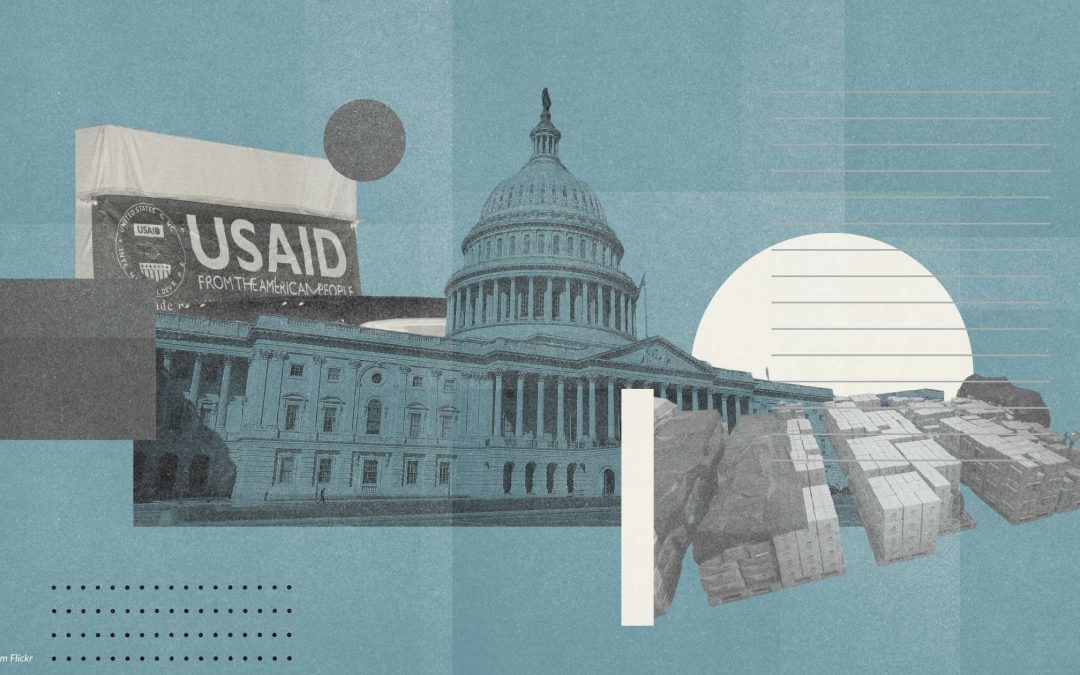In an effort to curb overseas spending and dwell on economic protectionism, the once again elected United States (US) President Donald Trump is attempting to shut down the US Agency for International Development (USAID), an institution that delivers and funds humanitarian programs since the 1960s. After its crackdown on transgender people, women, migrants, and other marginalized groups, the re-elected authoritarian now continues annihilating international relations through its executive orders, with the recent gunpoint to the aid agency. As per Elon Musk, a tech-giant billionaire and one of Trump’s appointed advisers, the president has “agreed” to shut down USAID, following Musk’s description of the agency as a “ball of worms” that is needed to “get rid of” and a “criminal organization” that has to “die.”
The US is one of the biggest donors that is part of the club of Northern countries that are obliged to deliver 0.7% of their country’s gross national income (GNI) to the Global South as an official development assistance or ODA. In 2023, the US has disbursed USD 66 billion worth of ODA, or equivalent to only 0.2% of its GNI—still short of the 0.7% threshold, but in terms of volume, the US delivered the highest amount during that year. Prior to Trump’s untimely re-election, former US President Joe Biden already announced a decrease in the foreign assistance budget for the fiscal year of 2025. A blow to this scale of development financing poses detrimental impacts, especially with how the US has already maneuvered and positioned itself to be in control of the global economy over the past century.
Beyond USAID, the longstanding hegemony of the US, as seen from the dominance of its foreign policies, has stunted the growth of global development. Trump’s authoritarianism will only propel international development cooperation towards its mono-capitalistic policies, and this will soon further derail the flow of foreign aid to developing countries, especially to the communities that need it the most. The already-dwindling commitment to ODA among donor countries will further scar existing humanitarian efforts, and the development cooperation landscape that is built from multistakeholderism, as championed by civil society organizations (CSOs) and marginalized communities themselves, will potentially crumble.
At this point, Trump and his cohorts have already spread massive aftershocks, especially in the Asia Pacific region, which is considered a major recipient of aid over the years. In the Philippines, efforts to address the HIV epidemic are now threatened to be halted. Syria’s attempts to stabilize its country following decades-long conflict are also affected. Health-related initiatives in India that address child mortality, maternity, and even food insecurity are now in limbo. Confusions and uncertainties have also shaken the Pacific, awaiting directives and instructions for the USAID-funded and assisted programs. Globally, this order has put the world on pause, and this puts millions of lives at risk.
Trump’s latest attack on USAID tells us how hegemony and authoritarianism, when combined, could easily compromise foreign aid: that existing development initiatives could be halted anytime, especially those that are channeled through local government agencies and CSOs; that defunding aid agencies is a possibility in order to realize profit and militaristic ambitions; and that disenfranchising civil society and communities of their mandate to steer development could be one executive decision away. This is clearly a dangerous attempt from a donor country, and others should not follow suit and work collectively instead to deliver their ODA commitments and prevent such attempts from recurring in the future.
Now that all hands are on deck for the upcoming Seville Conference in the hopes of mobilizing more financing for development, the US is now clearly redefining and steering away from this aim. Housing the International Monetary Fund and World Bank (IMF-WB)—the most influential development finance institution, which serves as the country’s fiscal army, notorious for imposing austerity measures and gripping developing countries with debt—the US gets to turn the wheel and decide for all, and Trump’s rise to power now imperils the global movement in holding culpable institutions to a higher accountability and redirecting financing towards the communities that have suffered from centuries of extractivist and colonial systems.
The Reality of Aid – Asia Pacific condemns Donald Trump’s and his cohorts, including Elon Musk who has profited from spreading mis/disinformation and maneuvering global technology, in their ambiguous spells to freeze foreign aid by defunding and shutting down the USAID. The network believes that foreign aid is relevant and important in shaping the international development landscape and in addressing poverty and inequalities at national, regional, and global levels. Donor countries, therefore, should continuously ramp up their ODA and adhere to their commitments in ensuring that aid is met and delivered.
We urge the US administration to rescind its destructive, racist, and fascist attempts to drive years of humanity’s collective progress backwards and uphold and honor universal principles of human rights and the right to development. We also join other development institutions in their calls for the US to reconsider its withdrawals from United Nations-intergovernmental institutions and agreements such as the Paris Agreement, World Health Organization, UN Human Rights Council, UN Relief and Works Agency, and other relevant organizations that aim to address the worsening crises of climate, hunger, and conflict. Furthermore, we compel the Trump administration to remain committed to its obligations to deliver ODA and reinstate the federal independence of USAID operations according to its mandate, and ensure that the institution would honor locally-led development agenda and principles of accountability, transparency, and ownership.
Though lights have become dimmer, the network, together with its members and partners, will continue to fight for a just and sustainable future—one that is free from bigotry and where development is enjoyed by all.

